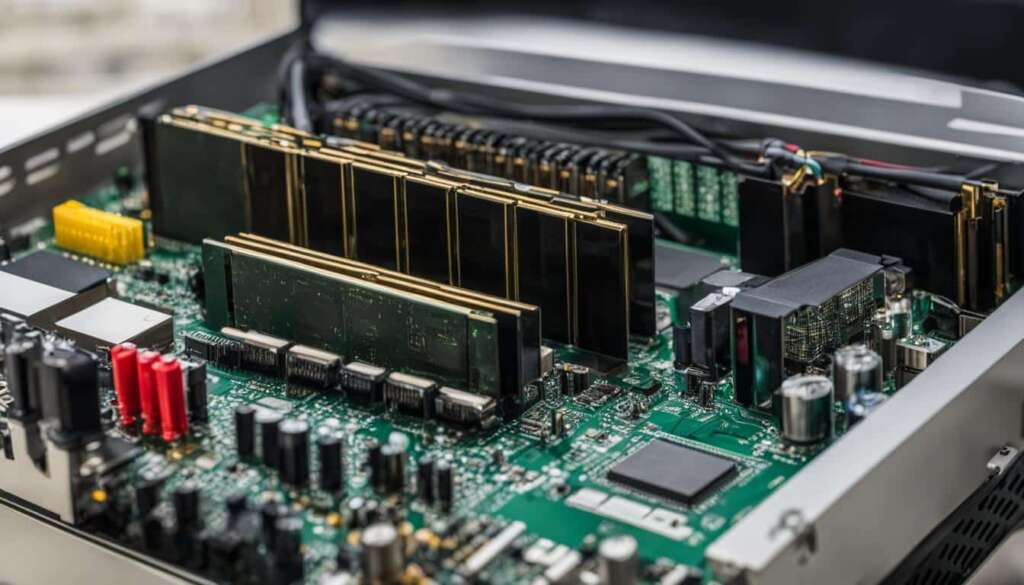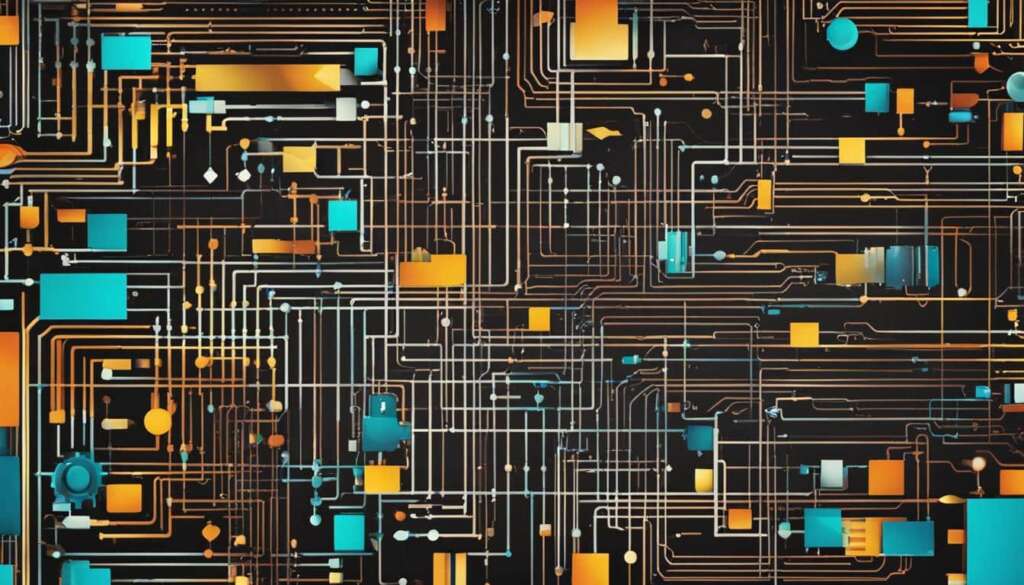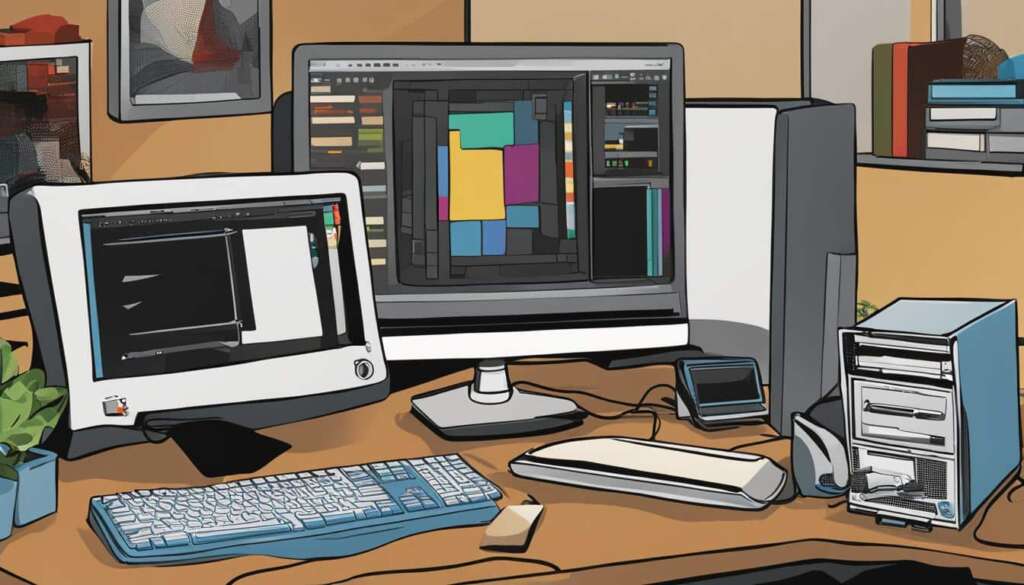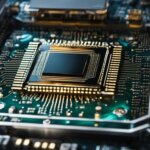Table of Contents
Welcome to our comprehensive guide on understanding the basics of computers. In this article, we will explore the meaning and definition of a computer, providing you with a clear understanding of this fundamental technology. Whether you’re a tech enthusiast or a beginner in the world of computers, this article will equip you with the knowledge you need to navigate the digital landscape.
The Basics of Computer Hardware and Software
Computers consist of both hardware and software components. Hardware refers to the physical parts of a computer, such as the keyboard, mouse, monitor, and internal components. It includes the computer case, which houses the internal parts. Software, on the other hand, consists of instructions that tell the hardware what to do and how to do it. Examples of software include web browsers, games, and word processors.
The CPU, or Central Processing Unit, is often referred to as the “brain” of the computer, as it processes information and carries out arithmetic and logical functions. Other important hardware components include the motherboard, GPU (Graphics Processing Unit), RAM (Random Access Memory), and storage devices such as hard disk drives (HDD) and solid-state drives (SSD). The operating system is a crucial piece of software that controls all functions on a computer and manages both the hardware and software components.
“Hardware is what you can kick, software is what you can scream at.” – unknown
Hardware Components:
- Keyboard
- Mouse
- Monitor
- Computer case
- Motherboard
- CPU
- GPU
- RAM
- Hard disk drive (HDD)
- Solid-state drive (SSD)
Software Components:
- Operating System
- Web browsers
- Word processors
- Games
| Hardware Component | Function |
|---|---|
| Keyboard | Input device for typing and executing commands |
| Mouse | Input device for controlling the cursor on the screen |
| Monitor | Output device for displaying visual information |
| Computer case | Protective enclosure for the internal components |
Different Types of Computers
Computers play a crucial role in our daily lives, but did you know that there are different types of computers designed for various purposes? Let’s explore the various computer systems and technologies that exist today.
Desktop Computers
Desktop computers are the most common type of computer system used in work, home, and school settings. They are designed to be placed on a desk and consist of a computer case, monitor, keyboard, and mouse. Desktop computers are known for their power and versatility, making them suitable for tasks that require high processing power, such as graphic design, video editing, and gaming.
Laptop Computers
Laptop computers, also known as notebooks, provide portability and convenience. They are battery-powered, allowing users to work or browse the internet on the go. Laptops have become increasingly popular due to their compact size and versatility. They are suitable for various tasks, including document creation, internet browsing, and multimedia consumption.
Tablet Computers
Tablet computers are even more portable than laptops and offer a different user experience. They feature touch-sensitive screens and do not require a keyboard and mouse. Tablets are ideal for activities such as reading e-books, watching videos, and playing casual games. They are also commonly used as educational tools for interactive learning.
Servers
Servers are a type of computer specifically designed to serve up information to other computers on a network. They are commonly used in businesses, schools, and large organizations. Servers are used for various purposes, including storing and sharing files, hosting websites, and managing network resources. They are powerful machines that can handle high volumes of data and requests from multiple clients simultaneously.
Specialized Devices
In addition to desktops, laptops, tablets, and servers, there are also specialized devices that can be considered computers. These include smartphones, wearables such as smartwatches, game consoles, and smart TVs. These devices integrate computer technology into everyday items and provide unique functionalities. Smartphones, for example, are pocket-sized computers that allow users to make calls, send messages, browse the internet, and run various applications.
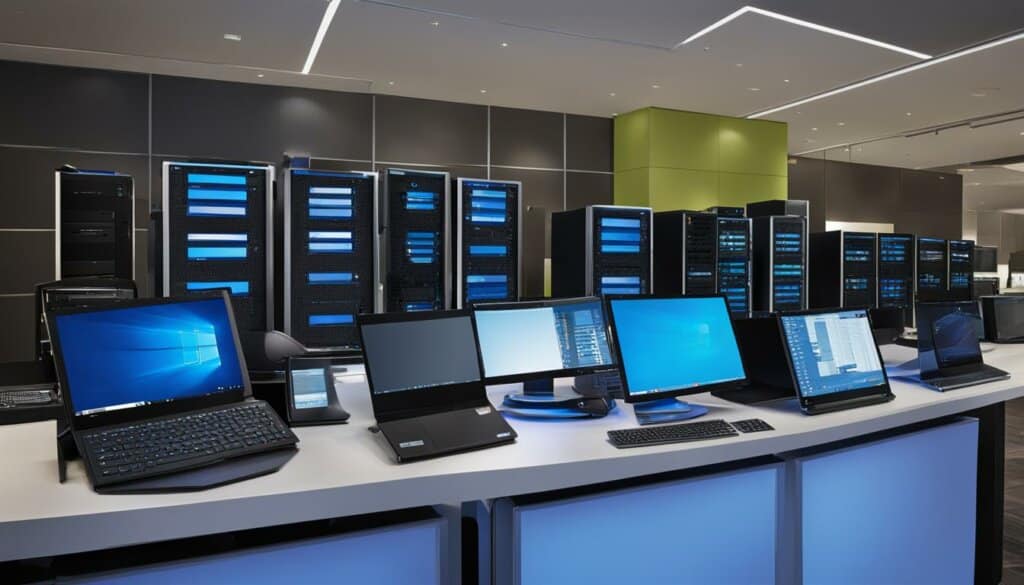
The Evolution of Computers
The history of computers is a fascinating journey that has seen remarkable advancements in technology. From the visionary concepts of Charles Babbage in the 19th century to the revolutionary breakthroughs in the 20th and 21st centuries, computers have transformed our world in ways we could never have imagined. Let’s explore the evolution of computers and how they have shaped the field of computer science and technology.
The Five Generations of Computers
Computers have undergone significant transformations over the years, leading to the concept of generations. Each generation represents a distinct era characterized by advancements in hardware and software technology. The first generation computers, developed in the 1940s, utilized vacuum tubes for data processing. These massive machines were slow and consumed a significant amount of energy. The second generation computers, in the 1950s and 1960s, introduced transistors, which made computers smaller, faster, and more reliable.
The third generation computers, emerging in the 1960s and 1970s, marked a significant milestone with the development of integrated circuits. These circuits allowed for an even greater reduction in size and increased computational power. The fourth generation computers, from the 1970s to the 1990s, witnessed the rise of personal computers and the birth of the World Wide Web. This era brought computing power to homes and offices and revolutionized communication and information exchange.
The fifth generation of computers, which we are currently in, is characterized by artificial intelligence, large-scale integrated chips, and the exploration of quantum computing. These developments have opened up new frontiers in computer science and technology, enabling computers to perform complex tasks, learn from data, and make decisions.
The Impact of Computer Evolution
The evolution of computers has had a profound impact on various aspects of our lives. It has revolutionized industries such as finance, healthcare, entertainment, and communication. Computers have become indispensable tools for businesses, enabling efficient data processing, analysis, and storage. They have transformed the way we work, communicate, and access information. The development of the Internet and cloud computing has made it possible to connect with people and resources from all over the world, providing endless opportunities for collaboration and learning. The advancements in computer technology have also paved the way for innovative applications such as artificial intelligence, virtual reality, and augmented reality, further expanding the possibilities of human-computer interaction.
As we continue to push the boundaries of computer science and technology, the evolution of computers holds exciting prospects for the future. From the early concepts of Charles Babbage to the era of artificial intelligence and quantum computing, computers have come a long way, shaping the world we live in and continuing to shape the world of tomorrow.
Applications and Impact of Computers
Computers have revolutionized the way we live, work, and communicate. Their wide range of functions and applications have had a profound impact on various industries and aspects of our daily lives. Let’s explore some key areas where computers play a crucial role.
Business and Productivity
In the business world, computers are essential tools for managing data, communication, and increasing productivity. They enable organizations to streamline operations, store and analyze large amounts of data, and automate repetitive tasks. Computer software such as word processors, spreadsheets, and presentation tools have become indispensable for creating professional documents, analyzing data, and delivering impactful presentations.
Furthermore, computers facilitate efficient communication and collaboration through email, video conferencing, and project management software. They also enable businesses to reach a global audience through e-commerce platforms and online marketing strategies.
Education and Learning
Computers have transformed the field of education, providing students and educators with access to a vast amount of information and resources. Online learning platforms and educational software have made learning more interactive, engaging, and accessible. Students can access educational materials, participate in virtual classrooms, and collaborate on projects with peers from around the world.
Computers also enable educational institutions to automate administrative tasks such as attendance tracking, grading, and scheduling. This helps educators save time and focus on delivering quality education. Additionally, computer-based testing and assessment systems provide instant feedback and help measure students’ progress.
Healthcare and Medicine
In the healthcare industry, computers are used for various purposes, including patient records management, medical imaging, diagnostics, and research. Electronic Health Records (EHR) systems have replaced paper-based records, allowing healthcare professionals to access and update patient information securely and efficiently.
Medical imaging technologies, such as X-ray, MRI, and CT scans, rely on computers to capture, process, and analyze images, aiding in accurate diagnosis and treatment planning. Computer algorithms and machine learning are being employed to develop advanced diagnostic tools and predict disease outcomes.
Computers also play a crucial role in medical research, facilitating data analysis, simulations, and drug discovery. They enable scientists to process vast amounts of genomic data and accelerate the development of personalized medicine.
Entertainment and Media
Computers have revolutionized the entertainment industry, providing us with immersive gaming experiences, digital music and video streaming, and engaging visual effects in movies and TV shows. Gaming consoles, high-performance graphics cards, and virtual reality (VR) systems have pushed the boundaries of gaming and entertainment.
The internet and social media platforms have transformed the way we consume and share content. We can access a wide range of movies, TV shows, music, and news articles from the comfort of our homes. Computers have also empowered content creators, allowing them to produce and distribute their work independently through platforms such as YouTube and social media.
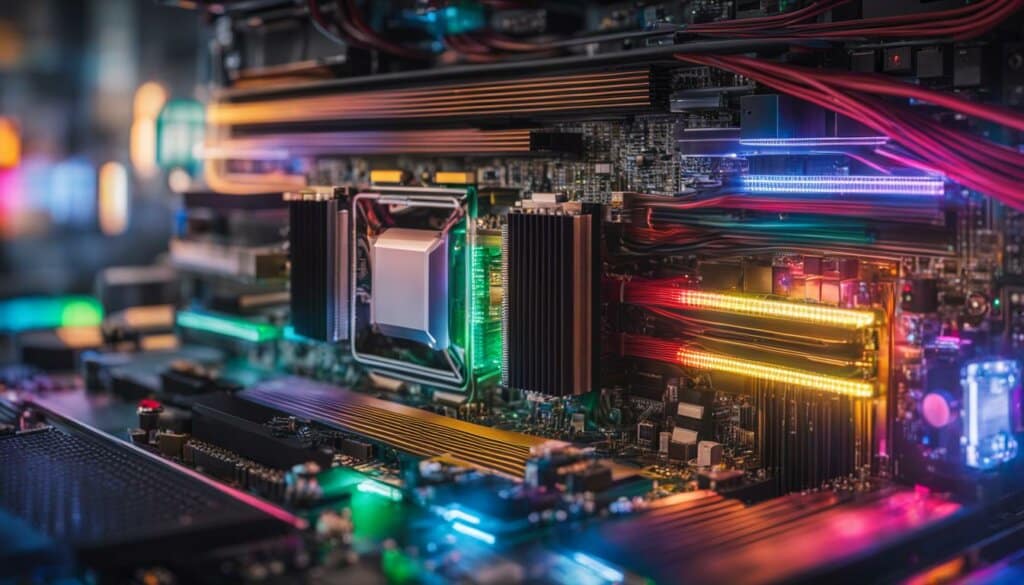
| Application | Impact |
|---|---|
| Communication | Enables instant global communication through email, messaging apps, and video conferencing. |
| Finance | Facilitates online banking, financial analysis, and secure transactions. |
| Research and Development | Accelerates scientific discoveries, data analysis, and innovation in various fields. |
| Design and Creativity | Empowers artists, designers, and architects with digital tools for creating and visualizing ideas. |
| Transportation | Enables navigation systems, traffic management, and logistics optimization. |
Computers have become an integral part of our daily lives, transforming industries, expanding opportunities, and shaping the future. The applications and impact of computers continue to evolve as technology advances, opening new possibilities and challenges that we are yet to discover.
Conclusion
Computers are electronic devices that manipulate information or data and have the ability to store, retrieve, and process data. They consist of both hardware and software components, with hardware referring to the physical parts and software consisting of instructions. There are different types of computers, including desktops, laptops, tablets, servers, and specialized devices such as smartphones and game consoles.
The evolution of computers has led to significant advancements in technology and has impacted various aspects of our lives. With ongoing developments in computer science and technology, the capabilities of computers continue to expand, shaping the future of our digital world. Computers are essential tools in today’s world, enabling us to perform a wide range of tasks and access vast amounts of information.
From basic computer basics to complex computer science and technology, computers have become an integral part of our daily lives. As we progress further into the digital age, it is crucial to understand the fundamentals of computer technology to navigate and thrive in the ever-evolving technological landscape. Embracing computer technology and staying updated with the latest advancements allows us to harness the full potential of computers and leverage them to accomplish tasks more efficiently and effectively.
In conclusion, computers have revolutionized the way we work, communicate, and live. As technology continues to advance, the importance of computer basics, computer science, and computer technology will only continue to grow. Understanding the principles and applications of computers opens up new opportunities and empowers individuals and businesses to thrive in today’s digital world.
FAQ
What is a computer?
A computer is an electronic device that manipulates information or data.
What are the hardware and software components of a computer?
Hardware refers to the physical parts of a computer, while software consists of instructions that tell the hardware what to do and how to do it.
What are the different types of computers?
There are various types of computers, including desktops, laptops, tablets, servers, and specialized devices such as smartphones and game consoles.
How has the evolution of computers progressed over time?
The history of computers can be divided into five generations, each characterized by different technological advancements.
What are some common applications and impacts of computers?
Computers are used in various fields and have had a significant impact on aspects such as communication, education, finance, healthcare, and entertainment.
Please note that this FAQ section is a summary for the entire article. It is recommended to include specific questions and answers related to the content within each section of the article.

